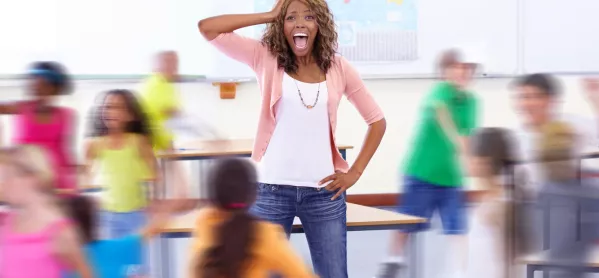
- Home
- Will lockdown mean some pupils are unteachable?
Will lockdown mean some pupils are unteachable?

Prior to Covid-19, my colleagues were all feeling the mid-year, pre-exam burnout. The staffroom table consisted of teachers speculating about how to escape the profession, or competing to share the most outrageous pupil anecdotes possible.
At no point did we imagine we would end the year teaching from our own homes.
During the pandemic, I have spent countless hours replying to emails with passwords and other general tech support - hilarious, considering that I would struggle to teach a Year 5 computing class - as well as finding new ways of engaging pupils remotely.
As an English leader, I have been fortunate that my team has had so many resources made freely available to pupils. There has been overwhelming support from the arts to enable our pupils to access more than they would have been able to, prior to the outbreak. With all this cultural capital at their fingertips, some of my pupils have thrived.
In my Year 7 cohort, several pupils have found the enforced lockdown a relief from the pressures of school, both social and academic. They have grown vegetables, joined online choirs and decorated their bedrooms. I’ve never seen so many pictures of cakes.
One family was so impressed by the improvements in their children’s mental health that they have opted to home-school them permanently.
Coronavirus: Pupils suffering in lockdown
However, for every parent email extolling the virtues of working from home for their child, there has been another that tells of pupils suffering in this crisis. Feelings of social isolation, confusion and lack of motivation to engage online mean they have done very little school work over the past few months.
In our middle school, pupils in Year 6 were back in the classroom for the end of term. They returned tired and jaded. Some of them admitted to going to bed as late as 11pm. One pupil went to bed at 4am, only to get up at 7am for school.
For some of them, online gaming has taken over their lives. These are pupils who failed to log in to the Google Classroom we provided, and have not submitted a single piece of work to be marked. No matter how many welfare checks our school does, we cannot address this gap until all pupils are back - the simple fact is some pupils will have been supported through this pandemic, and some won’t.
Our concern now turns to how those pupils returning to the classroom for the first time in September - after 68 days of missed education - are going to cope with the classroom environment. Focusing for an hour at a time. Abiding by a multitude of school rules, which will restrict their freedom. Tolerating others. Will these pupils be teachable?
Children ‘feeling a little bit feral’
As a natural optimist, I initially believed we might see a reduction in the apathy we so often experience in the classroom. Pupils might begin to appreciate their education in the way pupils in less-developed countries do. They might return enthused and engaged - ready to become the next scientist to invent a vaccine to fight threats like Covid-19.
However, even the key workers’ children who attended school throughout struggled to adjust when lessons began again at the end of term. For these pupils, the school had become a childcare facility, where classroom etiquette changed during lockdown to accommodate the range of ages, abilities and interests in the classroom. They feel a little bit feral.
When Covid-19 disbanded our education system, I hoped that, freed from the assessment cycle, teachers would see some positives for education, too. Without the pressure of Sats results, on which our schools are judged, we could allow pupils to be engaged in the curriculum rather than focusing on preparing for tests. Here was an opportunity to see some major changes to the way we educate.
Unfortunately, as the plans for the next academic year filter down to teachers, we are discovering that Year 6 Sats (and all primary tests) will return next year, to assess the lack of progress caused by the disruption of school closures. The focus on returning Years 10 and 12 first should have alerted us to the priorities of the Department for Education.
There do not appear to be any fundamental changes to our education system underway. Instead, teachers are forced to consider what teaching will look like in 2021: when they cannot approach a pupil in their classroom, when they cannot touch their books unless there is a 72-hour gap before the pupils touch them again, and when sharing resources will be restricted.
As teachers try to find a way of blending the new normal with the old system to support our pupils in what we all know will be another challenging year, we are hoping pupils will try extra hard, too.
Katie Packman is head of English at a middle school in Bedfordshire
Register with Tes and you can read five free articles every month, plus you'll have access to our range of award-winning newsletters.
Keep reading for just £4.90 per month
You've reached your limit of free articles this month. Subscribe for £4.90 per month for three months and get:
- Unlimited access to all Tes magazine content
- Exclusive subscriber-only stories
- Award-winning email newsletters
You've reached your limit of free articles this month. Subscribe for £4.90 per month for three months and get:
- Unlimited access to all Tes magazine content
- Exclusive subscriber-only stories
- Award-winning email newsletters
